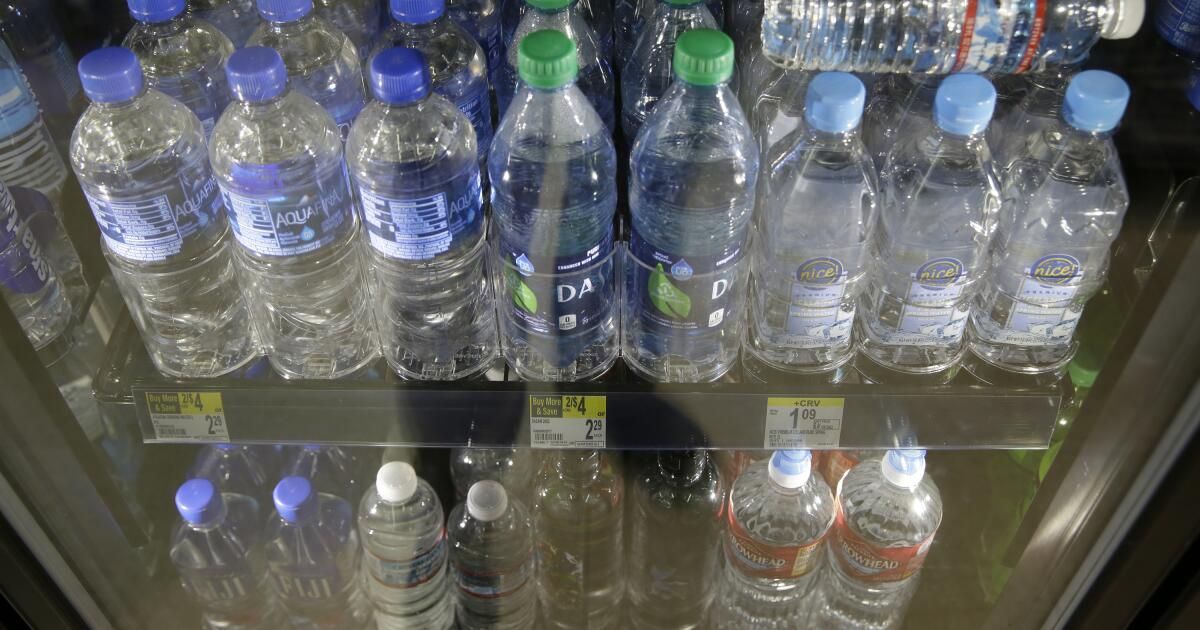To the editor: The alarming amount of nanoplastics in bottled water adds yet another reason why we need to invest in safe drinking water systems and stop relying on plastic water bottles.
Californians know the threats that water bottling companies pose to local water supplies. For example, in 2017 BlueTriton (formerly Nestlé Waters North America) was found to be withdrawing 25 times more water than it was entitled to from the state, including in the San Bernardino National Forest. The state told its private equity owners to stop using that water last September, but the company is currently in court fighting that decision.
Bottled water companies often pay next to nothing to extract local water, put it in plastic bottles, ship it around the world, and sell it for a profit. In the case of San Bernardino, the company paid only $524 to extract about 30 million gallons a year, even during the drought.
The bottled water industry seeks to privatize what should be protected as a human right: access to drinking water. We must move away from fossil fuel plastics and Congress should pass the Water Affordability, Transparency, Equity and Reliability Act of 2023 so all communities have access to safe drinking water at the tap.
Andrea Vega, Los Angeles
The writer is the lead organizer for Food & Water Watch in Southern California.
..
To the editor: Thank you for your insightful article on small nanoplastics in some brands of bottled water. It is shameful that we do not require that these plastics be proven safe before they are put on the market. Instead, the burden of proof falls on the public.
Now that we know that the presence of these particles can pose a threat to public health, there is an urgent need to multitask: chewing and walking at the same time. The production and distribution of products that release nanoplastics into the environment should be prohibited. We must demand the use of sustainable and environmentally friendly alternatives.
Waiting for more studies to be done should not be an excuse to avoid meaningful measures to mitigate the damage being done to us and the biosphere. We need to codify at the national and international level the crime of ecocide and the rights of nature and the Earth.
Robert Leyland Monefeldt, Los Angeles
..
To the editor: It's usually the typos that stop me in my tracks. However, in his article on nanoplastics, there was a wonderfully out-of-place sentence that made me think.
Reading “now that we've been disgusted by bottled water” as part of a serious report on hard science seemed pretty inappropriate, and I'm here to support it.
Thank you!
KJ Ward, Los Angeles












